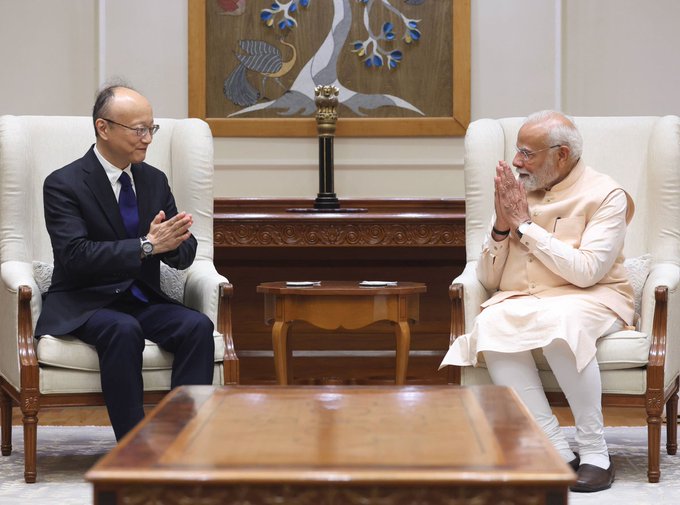
ADB President announces $10 Billion plan for India’s Urban Transformation
NEW DELHI : Asian Development Bank (ADB) President Masato Kanda announced a 5-year initiative aimed at transforming urban infrastructure across India, directing up to $10 billion, including third-party capital, into urban transformation including metro extensions, new regional rapid transit system (RRTS) corridors, and urban infrastructure and services.
“Cities are engines of growth,” Mr. Kanda said after meeting Prime Minister of India Shri Narendra Modi. “ADB will mobilize capital, accelerate delivery, and scale solutions that keep India’s urban economy moving and people thriving on the road to Viksit Bharat @ 2047.”
The plan includes sovereign loans, private sector financing, and third-party capital. The initiative is anchored by India’s flagship Urban Challenge Fund (UCF), which ADB is supporting to attract private investment for urban infrastructure. Completed analytical work on growth hubs, creative city redevelopment, and water and sanitation upgrades in 100 cities across India is laying the groundwork for the UCF. ADB is also committing $3 million in technical assistance to design bankable projects and strengthen the capacity of states and urban local bodies.
India’s towns and cities are projected to house more than 40% of the population by 2030. ADB has already worked with more than 110 cities across 22 states on water supply, sanitation, housing, and solid-waste management projects, and the active urban portfolio totals 27 loans worth $5.15 billion. On urban transport, over the past decade, ADB has committed $4 billion for metro projects and RRTS covering 300 kilometers in eight cities, including the Delhi–Meerut RRTS, Mumbai Metro, Nagpur Metro, Chennai Metro, and Bengaluru Metro, cutting congestion and emissions while widening access for vulnerable populations, including people with disabilities.
ADB will also invest in skills development through the National Industrial Training Institute Upgradation Program to boost the manufacturing sector, catalyze private sector growth, and create quality jobs, especially for India’s youth.
During his visit, Mr. Kanda also met Finance Minister Smt Nirmala Sitharaman to discuss expanding metro networks including transit-oriented development (TOD), supporting rural prosperity, scaling rooftop-solar capacities, and operationalizing the UCF. In addition, he met Housing and Urban Affairs Minister Manohar Lal to map next steps for channeling private capital into urban projects, replicating ADB-backed urban transport successes on new corridors, and creating TOD opportunities.
Mr. Kanda visited the ADB-supported Delhi–Meerut RRTS corridor, India’s first RRTS, and spoke with women whose livelihoods have improved through project-linked training. In Gurugram, he visited the renewable-energy company ReNew to discuss stronger collaboration in renewable energy, followed by a roundtable with chief executives from infrastructure, finance, agriculture, and social sector firms. In that meeting, he emphasized that India’s private sector can provide the scale and dynamism needed to drive India’s growth.
Under ADB’s country partnership strategy for India, 2023–2027, it stands ready to provide more than $5 billion in financing each year, including about $1 billion in non sovereign operations to catalyze additional private investment.
ADB began operations in India in 1986. As of April 2025, it had committed $59.5 billion in sovereign lending and $9.1 billion in non sovereign investments. The active sovereign portfolio comprises 81 loans totaling $16.5 billion as of April 2025.
ADB is a leading multilateral development bank supporting inclusive, resilient, and sustainable growth across Asia and the Pacific. Working with its members and partners to solve complex challenges together, ADB harnesses innovative financial tools and strategic partnerships to transform lives, build quality infrastructure, and safeguard our planet. Founded in 1966, ADB is owned by 69 members—50 from the region.

